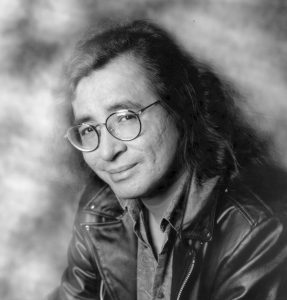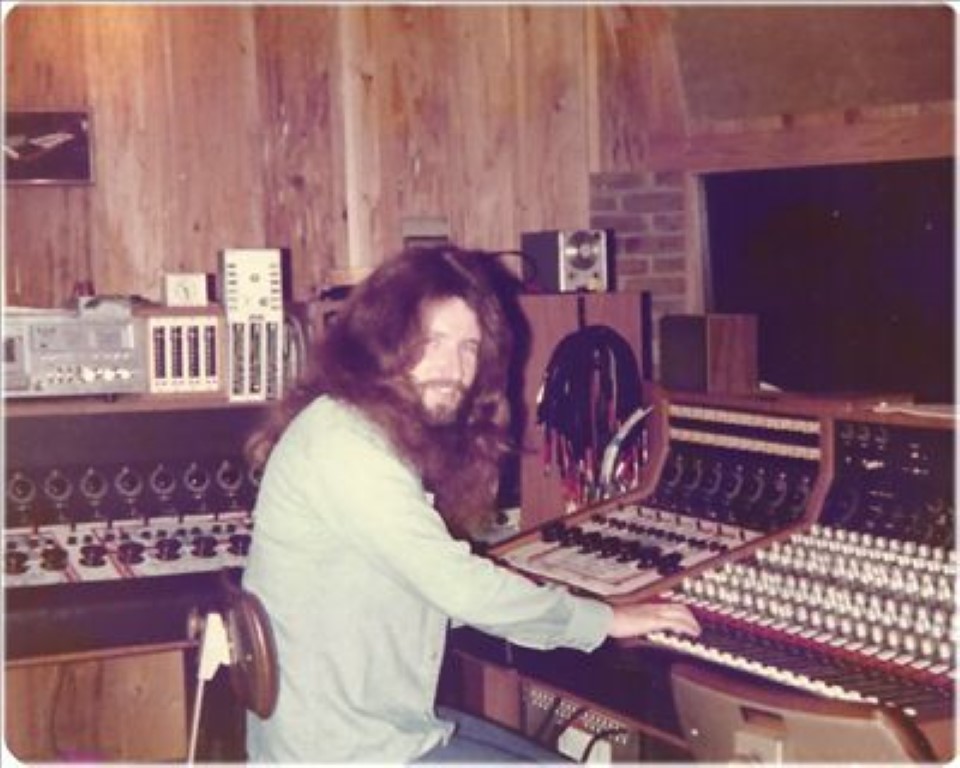The iconic playwright ruminates on the music of laughter
By Adam Tatelman, Contributor
I did not know what to expect from Tomson Highway when he arrived on stage in the Laura C. Muir Theatre. I only knew that he was a man of many achievements, including his induction to the Order of Canada in 1994 and receiving the National Aboriginal Achievement Award in 2001. He is the author of The Rez Sisters (1986), a popular play about life on an Aboriginal reservation, which is being performed here this week by Douglas College’s Theatre and Stagecraft students. He is a practiced cabaret pianist with a classical concert background, and overall is an idol of the global arts community.
So when he opened his performance with stand-up comedy, I was rather pleasantly surprised!
It was his self-deprecating humour and puns regarding the language barrier (“My English is not very good-looking!”) that caught me off guard. Although his humour was rather hit-and-miss, it was his demeanor that made the first half of his presentation engaging. Despite the pomp and circumstance heralding his arrival, he portrayed himself as “one of us,” telling how he was born in a snow bank in northwestern Manitoba right next to a grand piano. Okay, so the piano part was a joke; lighthearted and informal and the audience loved it. As Tomson himself said, “I love making people laugh. I will do anything to hear that sound.”
As the subject matter changed to his experiences in producing theatre and writing plays, he became more thoughtful, reminiscing about his days as a starving playwright and explaining how his musical training affects his writing of dialogue for characters in his plays. Enhanced with piano compositions, he explored the human body as an instrument: forte and piano characters, who are loud and soft respectively, allegro characters who talk very fast, and the way a scene becomes a symphony as more characters and their unique rhythms are added to the mix. An inspired analogy, and one that rings true; afterward, I could not help but examine the musical qualities of my own voice and others.’ In the composer’s words, “Some people make beautiful music, others make terrible music.”
This led to his selection of musical pieces, each of which demonstrated the expressive qualities of music and underlined his comparison of it to human speech. The first was from The Incredible Adventures of Mary Jane Mosquito (1991), his play about an anthropomorphic mosquito who was born without wings and ostracized for it: a relatable dilemma, expressed through the somber yet incredibly fast rhythm emulating the fluttering of insect wings. The second piece was from Rose (2000), another musical starring the cast of Rez and Dry Lips Oughta Move To Kapuskasing (1989), this one a slower love song with a definite cabaret feel, all about the innate power of women, a theme that often recurs in his works. Finally, Highway played a samba inspired by his travels in Rio de Janeiro, the “hottest, sexiest city in the world.” It was certainly an energetic piece, with Highway imitating all sorts of percussion instrument rhythms with only his piano. I could imagine crowds of people in Carnival dancing to his beat.
At the end of his presentation, Highway made a special acknowledgment of our talented young actors performing in Rez this year. He invited Fatuma Namatovu, who is portraying Emily Dictionary, to the stage to sing (to his accompaniment) her rendition of Billie Holiday’s “All of Me,” a song featured in the play. It was quite powerful for an impromptu performance, and the audience was rapt. I certainly enjoyed it, and am eagerly looking forward to seeing the play in full, as well as Highway’s foreshadowed “Canadian epic musical” promising dozens of actors and musicians on stage at once.
I’m not sure what I was expecting from Highway to begin with, but I enjoyed what he delivered: a mirthful evening of music and laughter, with the idea that both are one and the same thing. The man had an engaging, joyful quality about him and I thoroughly enjoyed his company.


